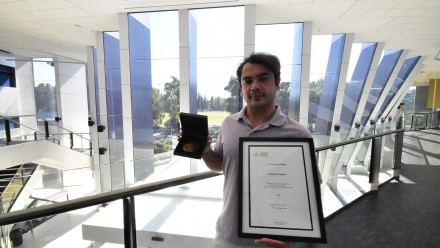Regulation of chromatin remodeling of the rRNA genes in mouse embryonic stem cells
In somatic mammalian cells over 50% of the ~200 copies of the RNA genes are silenced though CpG methylation. Given that rRNA gene transcription is limiting for growth silencing of half the rRNA gene capacity seems counter intuitive. Interestingly there is an increasing body of evidence to suggest that rDNA silencing is critical not only for suppressing unwanted recombination within the rDNA repeat and general nucleolar organization but also for controlling, to some extent, general heterochromatin of the nucleus. For example, in Drosophila mutants that are defective in the histone H3 Lys 9 (H3K9) methyltransferase Su(var)3-9 and other factors involved in heterochromatin formation exhibit increased nucleolar fragmentation and accumulation of extrachromosomal rDNA circles. In addition to suppression of recombination, it appears that the perinucleolar heterochromatin might serve as a distinct nuclear space with a primary function in maintaining repressive chromatin states. Thus the reason for the silencing of over 50% of the rRNA genes repeats in mammalian cells is not clear. In our view it seems unlikely it is to simply to limit rRNA synthesis rates and growth.
This project will use mouse embryonic stems (ES) cells to explore the biological function of rRNA gene silencing by manipulating levels of the Pol I transcription factor UBF and levels of the methyltransferase DNMT1.











